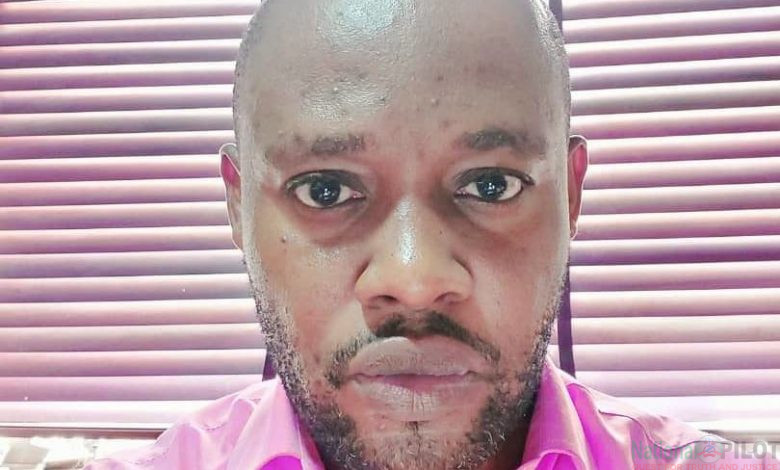Six of 10 children in Nigeria brought for DNA testing not fathered by supposed fathers – Geneticist

Abiodun Salami is a senior geneticist with DNA Centre for Paternity Test, Allen Avenue in Ikeja, Lagos. For over 10 years, DNA Centre has provided comprehensive DNA testing services in three main areas: paternity and other family relationships, Immigration, and DNA tests during pregnancy – Prenatal DNA test. In this interview, Mr Abiodun speaks about paternity fraud and the practice of DNA testing in Nigeria. Excerpts:
There is what appears to be renewed interest in DNA testing in Nigeria. Why do you think this is happening?
Well, there are several reasons. The first reason is immigration purposes because when you are travelling abroad, you will be required to carry out a DNA test on the kids who would be accompanying you, especially if you say you are the parent. The second reason could be child trafficking. At the airport, if you are a woman and you are traveling with a child less than six months, you will be asked to go for a maternity test to confirm if you are the mother of the child.
Oh, there is a maternity test too?
Yes. We do maternity testing to ascertain the mother of a child. The third reason is a major reason – infidelity in marriage. There are so many issues online, I mean, we have read and seen cases of fathers raising children that don’t belong to them. It has always been like that, sincerely, but because of social media, people can now share and we know what is happening. People are getting to know that they can actually do DNA testing to know the father of the child, instead of raising a child for more than five, six years only to discover he is not your own.
What was the patronage like at your facility prior to this renewed awareness?
Let me give you the statistics. Before now, we do an average of 100 DNA tests in a month, but now we handle as many as 400 cases monthly.
The statistics are mind-blowing. You discover that almost 60 percent of the tests that people come to do are negative. In fact, 6 out of every 10 paternity tests turn out negative. Statistically, in DNA paternity testing, most times, in Nigeria, we see that six out of every 10 children might not be fathered by their biological father.
The statistic is baffling
Yes, but it is also a biased statistic. Because for someone to walk in here, he already suspects that there is an issue. There is really a doubt already and most people won’t believe that statistics until it happens to them. I always advise men, it is good to trust, but verify. Things are happening. If everyone starts doing DNA tests, the whole country will scatter. There will be no marriages again.
Most female undergraduates now have one man or the other sponsoring their education aside from their father. These are the men that will eventually be the chairmen at their wedding. These are the men they are actually sleeping with. From experience in DNA testings, most firstborns are not fathered by the husbands at home, because these people have a prior relationship before getting married. Most times, they continue with that relationship, they don’t leave it after marriage.
How would couples who welcomed their kids via assisted reproduction manage privacy, especially when a DNA test is required of them for immigration purposes?
We had a case of a family that did IVF and used a surrogate mother. When they wanted to travel out, the embassy sent them here to carry out a paternity and maternity test to discover that they were not the real parents of their babies. We discovered that the fertility clinic they used actually mixed the man’s sperm. They had triplets, two children were from the man’s sperm cells and one was not from him. The two other children were from the mother’s cells and one was not from her. They had to go back to the agency to find out what happened. Probably, there was a mixture of sperm cells or eggs. But normally, even if they used a surrogate mother, the children will take their DNA from the egg or sperm donor, so it doesn’t really matter.
This means there shouldn’t be any form of secrecy if the parents conceived via IVF, for instance. They need to open up to the geneticist right?
Yes, they should open up because we will detect. Normally, it should be a perfect match. If you are doing a paternity test for a child and samples taken from both parents, it should have a perfect match. This is because each child will take half of the chromosome from the father and another half from the mother. If there is a mismatch, there is a problem. Now, if we are having a perfect match for the father and an almost imperfect match from the mother, we will ask questions.
Most times, when a woman is the gestational carrier – she owns the egg. But in rare cases when fluid passes through the uterus, I mean the fallopian tube, there is a mixture of blood going from the mother to the baby. And when there is a mixture, some parts of the DNA of the gestational mother will go into the baby, just a few. So when there is a mismatch, we know it was an IVF that occurred.
Cryptic pregnancy appears to be a thing in Nigeria.
You know cases where couples that have been trying to conceive for years then go where they tell them they can give them baby, they pay, the mother will tell them the sex she wants.
In most cases, they inject a sex hormone into the woman and they tell them not to go for a scan. Eventually, when they give birth and they come for a test, we discover that the husband or wife does not own the child. So, she feels she is actually pregnant because she exhibits all the signs of pregnancy and they will be the ones to tell her she is due. But when she wakes up, she’ll see a baby— the people claiming to cut off the umbilical cord from her, whereas it is another baby they brought from the labour room. So, when we do a maternity test, we discover that the baby is not hers. So, we tell them to go back and tell them the child is not theirs. So, we have seen cases like that. This is what we call cryptic pregnancy.
What is the craziest you’ve experienced?
A lot. Let me see. We have had cases where two men fight over a child. They were a childless couple before the wife got pregnant for her childhood boyfriend. She gave birth to twins boys, who incidentally looked a lot like her husband but the man outside was pressuring her to bring the children, saying he was ready to marry her. It became a big issue and when it came to the issue of child custody the court brought them for a test and we discovered that the man at home and her childhood boyfriend were not even the father of the child.
Can a mistake occur during DNA testing?
It is possible to make human error, especially when there is a mix-up with the sample. That is a human error but it is very rare. But there are also cases where we have Chimera’s syndrome, but it is also rare. This is when a woman’s DNA does not match that of her child. It is very rare, probably one in a million cases.
How much does it cost to undergo a DNA test? Please take us through the process?
It costs about N60,000 per person, which is about N120, 000 for father and child. We use different samples like the mouth swab, hair, blood, wax, sweat, chewing gum, and toothbrush. But the best is the mouth swab where you just use cotton wool, it is those lose cells from the mouth that we extract the DNA from the nucleus of those cells. Once the DNAs are extracted we then compare the genes. As a human being, I inherit half of the genes from my father and another half from my mother. So, what we do is to compare half of my father’s DNA with half of mine and there must be a complete match. If there is a complete match, then the probability of paternity is about 99.99%. If there is a mismatch in one or two or three places, it will automatically come down to zero. That means we are not related and the results are ready within a week or at least seven working days.
Do you counsel couples before you carry out the DNA test?
Yes, we do that a lot. Even post-testing, when the result comes, we see some men crying and saying that they have made a mistake by not taking care of a child because he thought he wasn’t his. Some men also break down when they discover that he has been raising another man’s son.
It’s worse when the wife isn’t remorseful. We have seen a lot, we counsel. There have been cases when a man will come for a DNA test and the result comes out negative and after lots of talk and counsel, the wife insists that she didn’t have any extramarital affair. We then conducted a maternity test and discovered that the woman was also not the mother of that child. We then ruled out infidelity and realised that the baby was switched at the hospital shortly after birth. Most times this occurs when the wrong name tag is put on the child’s hands.
How can hospitals avoid this costly mistake?
Well, training of the nurses. Then the name tag, maybe they will use another technology and not using a biro to label baby. If they can use scan – scan the mother’s and baby’s hands. It is much better than using biro and paper to tag baby A and B and it falls off and they slap it on another baby. That happens a lot.
Do couples walk into your hospital or do you meet them at their preferred location?
Most times, it is the fathers that come without informing their wives.
Do you encourage this?
It now depends on their own decision. Let me give you an instance of what happened recently. The man came around recently and according to him, he was ill. So he left his car at the office and a pool car brought him home and he was resting downstairs in his home. Later in the evening, he overheard his wife’s phone conversation with her lover. She was breastfeeding their seven-month-old baby and was saying, ”Kayode, your baby will resemble you, your baby is biting my nipples”. Then she said the baby should take the phone and talk to his daddy. Our client didn’t say anything to his wife – he was so surprised and then brought the baby for a DNA test. In that case, would you tell the wife? And when the result came, truthfully, he was not the father of the child. These are reasons why men will not want to tell their wives.
Do you also have cases where the women themselves come behind their husbands to do the test?
Yes, they come. But this time, they come with the father’s sample. Most times, they come with the man’s toothbrush to know if the child is their husband’s. They don’t tell the man – we extract the DNA of the man and compare it with the child and they take the result.
Sometimes, the finding could be that their husband owns the child, and sometimes, it could go the other way.
I’m sure during the course of this your job, you’ve seen many marriages crash?
I would only assume because once we do the test, we counsel and the decision is theirs, do you understand? But it is always good to know the truth than live in deception, you will agree with me. It is best to allow the children to have a relationship with their real biological parents, because most times, the truth will always come out, one way or the other.
Except it’s a case of assisted, every other process should be as transparent as possible.
What other tests do you carry out at your centre?
Well, strictly, we only do DNA testing. But there are different types of DNA testing. We have the paternity test to determine the father of a child. We have a maternity test to determine if the mother of a child. We have avuncular testing to determine paternity when the father is not available for testing. An avuncular test will also determine if a sibling (a full blood brother or sister) of the father in question is related to a child, and thus prove paternity. We can do also an uncle-child or aunt-child test in avuncular testing.
We have DNA profiling whereby the people will do their DNA test and keep it in a file for 15 years so that they don’t need to exhume their body when they are deceased because of paternity issues. So once you have the genetic profile of the deceased, we just have to compare it with that of their children.
We do blank parenting testing when the parents are dead. If the late mother for instance was an only child, you can use her parents. We test the samples of the grandparents to see if there is a relationship between the grandparents and the child.
The male lineage or Y-STR paternal lineage test can confirm a father-son relationship by determining if a child is related to an alleged father’s other male relative, for example, his brother, father, or grandfather. We do the male lineage or Y-STR paternal lineage test mostly to resolve kingship tussles.
Is the practice regulated in Nigeria?
Yes it is, but not many people are not aware of the possibilities in DNA testing. We need to keep sensitising people. Did you know that genetics can help curb corruption and solve high-profile criminal cases?
When it comes to fighting corruption in this country, for example, the government can pass a law mandating that every child born in Nigeria must have their DNA profiles done. If you have the DNA profile of every Nigerian, all these issues of theft and armed robbery will be minimal because they know that their genetic footprints or fingerprints will always give them out. People will no longer rape and go scot-free in this country. What if I told you that some of these crimes are committed by the same criminals who should be in prison. If the government can pass a law, for instance, mandating the creation of a DNA database of all the prisoners in this country, the crime rate will greatly reduce in Nigeria.
Culled from premiumtimes





